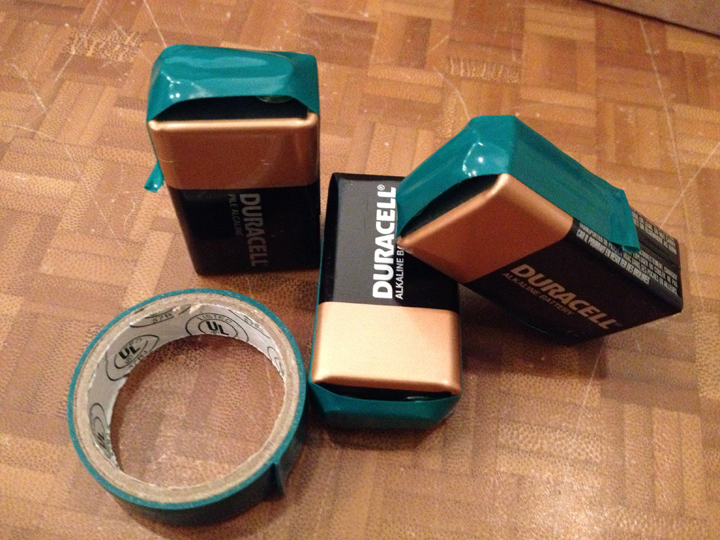Celebrate and Respect Batteries

Proper Care, Storage and Recycling
February 18 is Battery Day! A day to pay homage to an everyday item that humans often take for granted. If batteries were human, they would probably feel unappreciated and even neglected based on careless ways they can be treated.
However, batteries should be respected every day. Batteries power so many different devices and provide convenience and freedom that are unmatched by an electrical cord. To appreciate batteries, imagine what your life would be like without them.
Batteries are used in countless commonplace items -- mobile phones, flashlights, laptop computers, radios, tablets, watches, e-cigarettes, smoke detectors, handheld game devices, television remotes, toys, automotive vehicles, robo vacuum cleaners, garden tools, hoverboards, and more. Many of these items, which are powered by batteries, we would not want to live without.
Batteries are so commonplace and versatile that it is easy to be lulled into complacency when using or handling them. However, if these ubiquitous power packs are handled, stored or disposed of improperly, they can be dangerous to humans and harmful to the environment.
More and more, improperly disposed batteries are the cause of fires and explosions at recycling facilities, landfills, and waste incinerators. According to a U.S. Consumer Product Safety Commission report, the number of accidents involving batteries is increasing every year. For example, over 25,000 fire incidents involving about 400 different lithium battery powered consumer products occurred in the five-year period between 2013 and 2018. However, in the last three years, more than 31,000 fires of the same type occurred.
All types of batteries can be dangerous if not handled, stored, and transported properly. Incredibly, 9-volt batteries have been linked to home fires. News 5 Cleveland provides the story of two home fires caused by 9-volt batteries that were improperly stored.
Tips for Battery Care and Storage:
- Never touch or allow anything else to touch both terminals at the same time.
- Never store batteries loose, piled, or bagged in such a way that posts can touch.
- Store batteries out of reach of children.
- Small batteries should be stored in original packaging whenever possible.
- 9-volt batteries should be stored standing up if possible.
- Do not store batteries in “junk drawers” or boxes of assorted items.
- Never allow batteries to contact metal – don’t’ store them around paper clips, binder clips, coins, silverware, screwdrivers, etc.
- Don’t store different types of batteries together.
- Never burn or expose batteries to flames.
- Be aware that all batteries will eventually leak. Watch for corrosion. Avoid touching corroded batteries with bare hands.
- Even weak or dead batteries will retain enough charge to cause fires or shock, so careful.
- Never allow batteries to contact water.
- Never take apart a battery.
- Only recharge batteries that are designed to be recharged.
- Any tool used around batteries should be non-conductive.
- Never smoke around batteries.
- Recycle used batteries properly.
Battery Recycling
Battery Day is an opportunity to celebrate the power and convenience of this important tool, but respect the potential hazards that batteries pose.
Batteries are made from a variety of different chemicals and metals including alkaline, silver-oxide, nickel metal-hydride, lead-acid, nickel-cadmium, lithium-ion, and zinc-carbon. When thrown in the regular trash, batteries decay in landfill sites and could leak into the groundwater, which may pollute soil and water in a community.
Proper battery disposal prevents pollution, conserves landfill space and saves metals and minerals that can be recycled and used in new products. Proper preparation of batteries for recycling is essential to prevent fires while in transit. Batteries rubbing together create the risk of sparks and fire. This puts waste management employees, facilities, transportation vehicles and other property in danger.
Prince William County residents can bring various types of household batteries and lead acid automotive batteries to the Prince William County Landfill or the Balls Ford Road Compost Facility every day. These facilities do not accept hybrid/EV batteries used in electric cars. Contact a car dealership or auto parts retailer for EV battery recycling.
In addition to the two county facilities, several retail outlets also make battery recycling convenient for many types of batteries. Home Depot, Lowe’s, Best Buy, Staples, or battery specialty stores like Batteries Plus and Interstate Battery all have battery-recycling programs. Mom’s Organic Market has an extensive recycling center that accepts a wide range of battery types. Earth 911 and Call2Recycle are great online resources to find battery recycling drop off locations, and battery recycling mail-in program options.
No matter what recycling option is used, tape over the terminals (ends) of household batteries to prevent them from short circuiting and possibly causing a fire. Duct tape or non-conductive electrical tape is recommended by Call2Recycle.org, a leading consumer battery recycler.
On February 18, or any day, as you celebrate the power of batteries and the freedom and convenience they provide, also give batteries proper respect by handling, storing and recycling them with care.
For more information on how to recycle and properly dispose of materials in Prince William County use the A to Z Disposal Guide, www.pwcva.gov/disposalguide.
Source: Solid Waste Division Battery Training, Polly Flory
